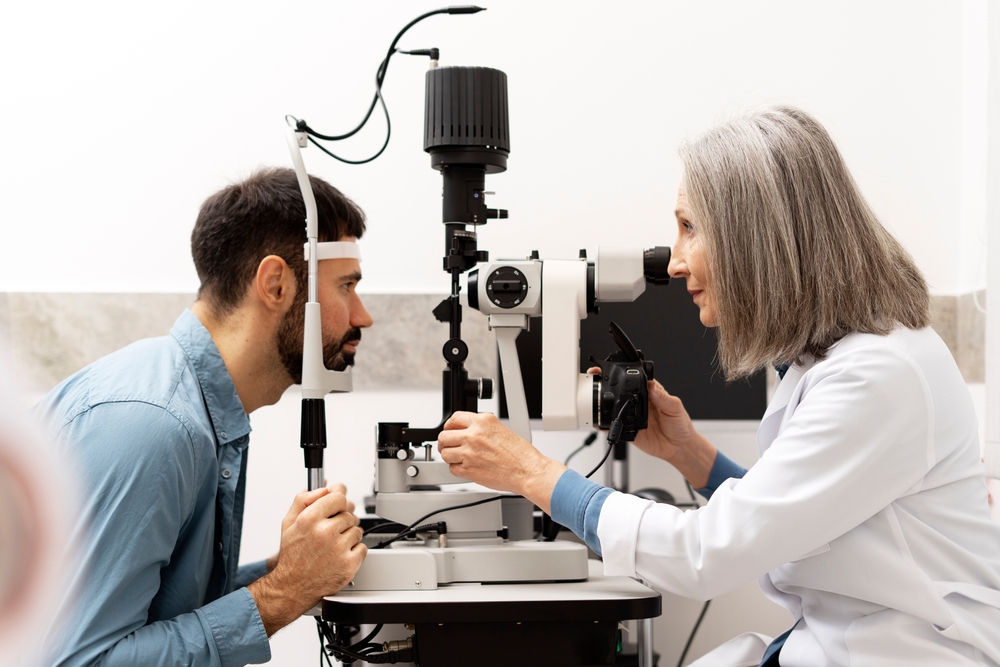
Glaucoma is one of the leading causes of vision loss worldwide, yet many people don’t realize they have it until significant damage has already occurred. Because this eye disease often develops without early warning signs, routine glaucoma screenings are essential to safeguard your sight. At Eye-Site of Boynton Beach, we emphasize the importance of regular eye exams to catch glaucoma in its earliest stages.
What Is Glaucoma?
Glaucoma is a group of eye diseases that damage the optic nerve, usually due to high pressure inside the eye (intraocular pressure). Over time, this damage can lead to vision loss and even blindness if left untreated.
Types of Glaucoma:
• Open-Angle Glaucoma: The most common type, developing gradually as the eye’s drainage system becomes less effective.
• Angle-Closure Glaucoma: Less common but more severe, this type occurs when the drainage angle suddenly becomes blocked, causing a rapid rise in eye pressure.
• Normal-Tension Glaucoma: Optic nerve damage occurs even though eye pressure is within the normal range.
• Secondary Glaucoma: Develops due to another condition, such as injury, inflammation, or advanced cataracts.
Why Routine Eye Exams Are Crucial
Since glaucoma rarely shows symptoms in its early stages, regular comprehensive eye exams are the only way to detect it before vision loss occurs. Early detection makes it possible to monitor changes in your eye health over time, slow or prevent the progression of the disease with treatments such as medication, laser therapy, or surgery, and protect your vision before permanent damage sets in.
During a comprehensive eye exam, our optometrist may perform several tests to check for signs of glaucoma, including:
• Measuring intraocular pressure (tonometry)
• Examining the optic nerve for signs of damage
• Visual field testing to assess peripheral vision
• Imaging and scans to track changes in the optic nerve and retina
How Often Should You Be Screened?
For most adults, an annual comprehensive eye exam is recommended to monitor for glaucoma and other eye diseases. However, some patients may need more frequent screenings, especially if they are at higher risk.
You may need more frequent glaucoma screenings if you:
• Are over the age of 40
• Have a family history of glaucoma
• Are of African, Hispanic, or Asian descent (higher risk groups)
• Have diabetes, high blood pressure, or other systemic health issues
• Have experienced eye injuries or long-term steroid use
Take the Next Step at Eye-Site of Boynton Beach
Glaucoma may be silent, but its impact on your vision can be devastating if left undetected. The good news is that with regular exams, early detection, and treatment, most people with glaucoma can preserve their sight.
Schedule your next eye exam at Eye-Site of Boynton Beach to detect signs of glaucoma before damage occurs. Visit our office in Boynton Beach, Florida, or call (561) 738-0111 to book an appointment today.




